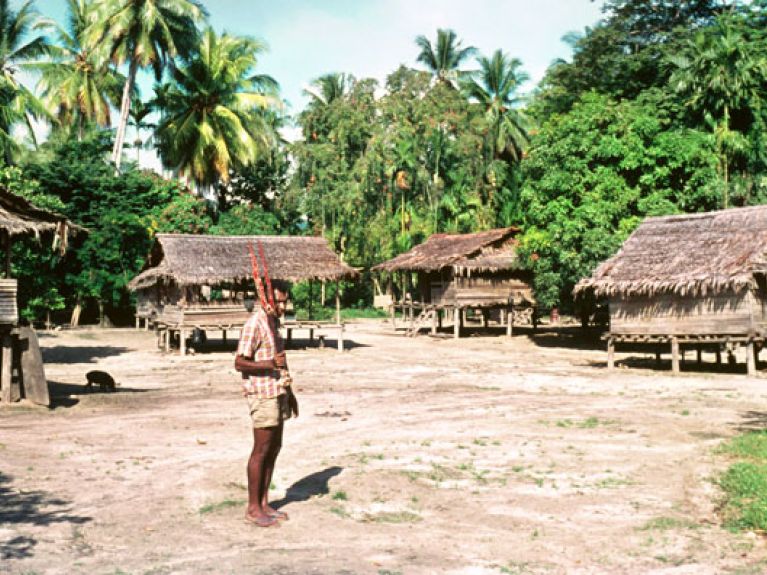“Unserdeutsch” – the only German-based creole language
More than a century ago, “Unserdeutsch” was invented by missionary school children in the South Seas

“Du geht wo, Du essen was?” Anyone who speaks German will doubtless understand this question despite its somewhat clumsy grammar. It is in fact German, however – or more precisely “Unserdeutsch” (i.e. Our German), a creole language that is at risk of dying out. A language is described as creole if it emerged from several different languages. “Unserdeutsch” is now spoken by fewer than a hundred people – most of them elderly – in Papua New Guinea, and is the world’s only German-based creole language. Unlike most creole languages, which evolved in the context of trade on plantations or in ports, “Unserdeutsch” is the result of a secret language invented by missionary school children during the German colonial period in Papua New Guinea in around 1900.
The mothers of the missionary school children belonged to one of the local tribes, while their fathers were colonial officers from Germany, seafarers from Australia or migrant workers from China. In the Catholic Herz-Jesu-Mission Vunapope near Kokopo, today’s provincial capital, the children would be taught by the nuns in standard German. Outside school, they would mix the German they learnt in the classroom with the languages of their parents, the result being “Unserdeutsch”. The German phrase “Um drei Uhr hole ich dich ab” (meaning “I will pick you up at three”) became “Drei Uhr i komm aufpicken du”, “i” being a mixture of the German “ich” and the English “I”, while for simplicity’s sake the children only used “der” or “de” as the definite articles.
Not discovered until the 1970s
Professor Craig Volker from the Divine Word University in Madang (Papua New Guinea) only discovered “Unserdeutsch” by chance in the 1970s. Together with the linguistic experts Professor Péter Maitz and Professor Werner König from the University of Augsburg, he is studying “Unserdeutsch” more thoroughly. During the course of a three-year project, the linguists are documenting the at-risk language, systematically describing its structure and reconstructing its history and evolution. The German Research Foundation (DFG) is providing 367,000 euros in funding for the project. “Anyone who speaks German can understand Unserdeutsch fairly well because the vocabulary is largely the same”, explains Professor Maitz.
International Mother Language Day on 21 February 2016

